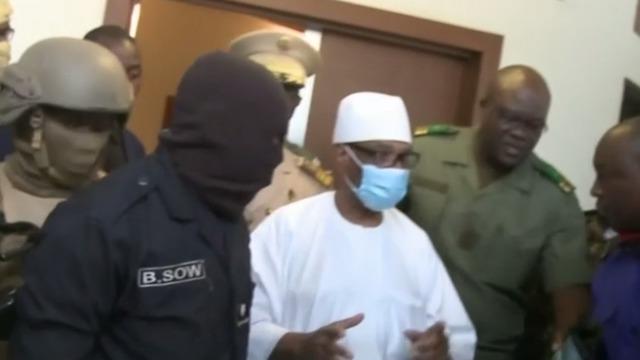▶ Watch Video: President of Mali arrested in military coup
Investigations into a string of beheadings in southern Mali that have shocked the nation in Africa’s Sahel region have scored a breakthrough, judicial and police sources said on Monday. Ten people in the cotton-growing town of Fana have been decapitated since 2018, sparking fears of ritual killings.
“We have arrested the main suspect,” local prosecutor Boubacar Moussa Diarra told AFP by phone.
“The details he gave of the crimes correspond to the nature of the murders,” he said.
A police official who declined to be named revealed the suspect had been arrested a year ago but had only confessed last week to the grisly murders.
Neither the prosecutor nor the police official revealed the possible motive for the crimes.
The victims included a former soldier, a housewife, a five-year-old albino child and a 2-year-old girl, and had apparently nothing in common.
In most cases, their heads were found, but their blood had been collected, sparking fears of ritual murders and demands for a local police station that were met in 2019.
The local authorities have urged caution regarding theories surrounding the killings and stress that the investigation is continuing.
Mali has continued to be a danger zone for civilians and peacekeepers, especially since a 2020 military coup and the “activities of extremist groups,” the United Nations said last week. The U.N. warned about continuing violence in the nation after the abduction of a doctor working for the U.N. health agency.
A U.N. mission in Mali launched about a decade ago following insecurity in the north and the military coup. On Friday, U.N. Special Representative El-Ghassim Wane told the Security Council that stabilizing Mali is crucial, “not only for the country but for the entire region.”
Wane said the U.N. mission “has continued to make a sustained effort to protect civilians.”
“It’s done so despite the difficult environment in which it operates and the gaps in capacity, which are significant,” he said.



































